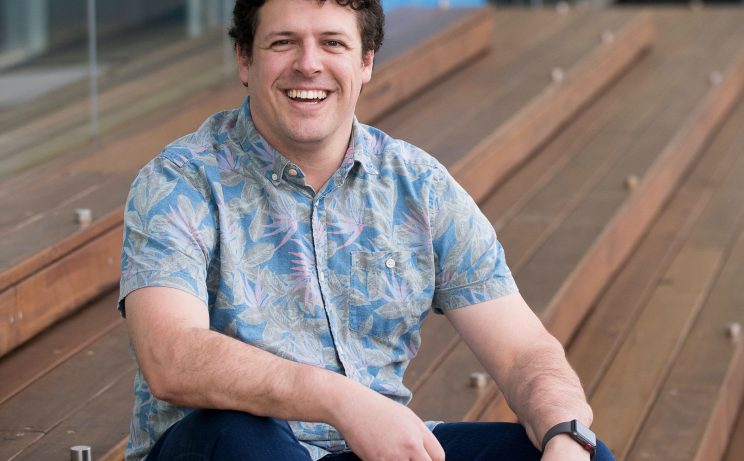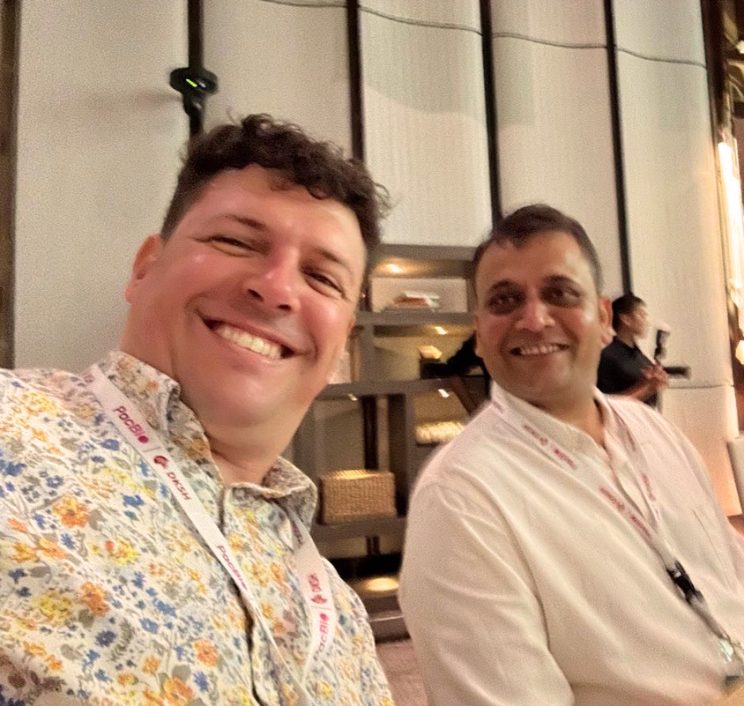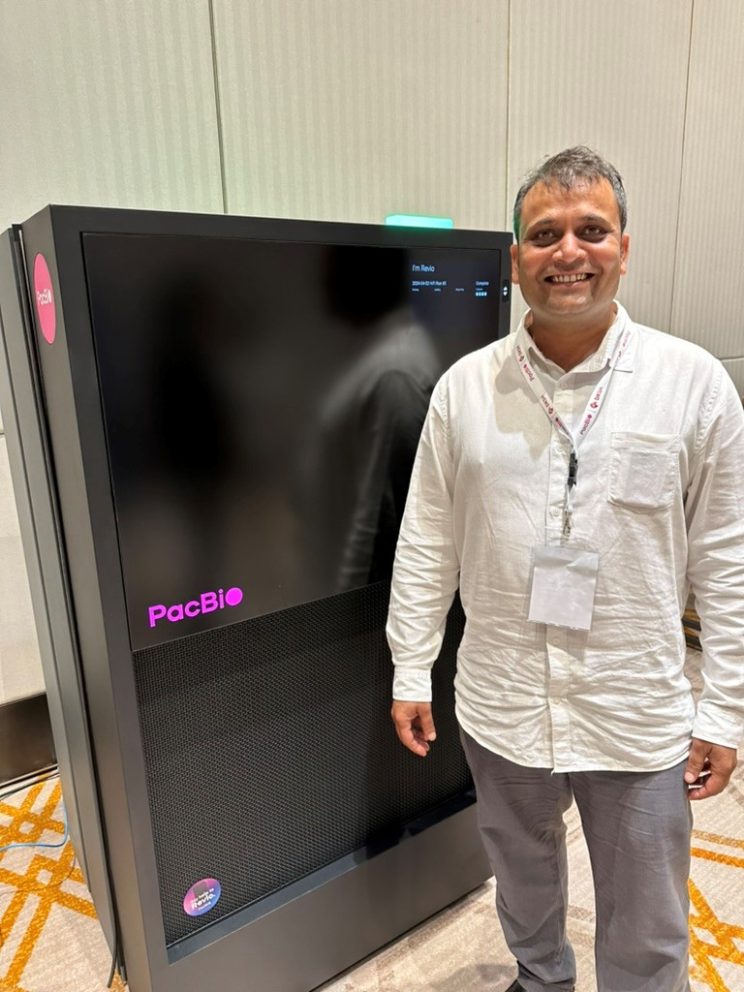ALIGN joins Pacific BioSciences to talk about precision health

7 May 2024
A Global Perspective: Strategic Insights into Planning Population genetics and precision health research
A major focus for ALIGN is identifying key technologies and methods that will enable Indigenous genomics and precision healthcare in the future. As innovation continues to develop in genomics, researchers and healthcare providers need to assess the benefits to individuals and communities.
Earlier this year, ALIGN members Associate Professor Jimmy Breen (Chief Data Scientist Black Ochre Data Labs, Telethon Kids Institute and Australian National University) and Dr Hardip Patel (Bioinformatics Lead, National Centre for Indigenous Genomics (NCIG), Australian National University), were invited to the Pacific BioSciences Asia Pacific PopGen Forum which was held in Bangkok, Thailand. The meeting titled “A Global Perspective: Strategic Insights into Planning Population genetics and precision health research” was a great chance to meet with people working in population genomics and precision medicine across the Asia-Pacific region, and to explore projects that are underway in our region.
Who are Pacific BioSciences?
Back when the human genome was completed (…but not finished!) in 2001, sequencing someone’s genome was tough! It was a long process that required thousands of people to sequence long bits of DNA that could be assembled into a genome. It was like the world’s most difficult and expensive jigsaw puzzle. In the mid-2000’s high-throughput sequencing machines were developed by companies such as Illumina (formerly Solexa) and Roche (formerly 454 Life Sciences), which made sequencing infinitely faster, cheaper and more accurate. Instead of US$300 million for 1 genome that took 10 years to develop, it now cost <$10,000 and could be sequenced in a week (it’s now less than US$800). However the increase in speed and reduction in cost came at a cost, the jigsaw puzzles got smaller, only identifying <100 nucleotides (i.e. A’s, G’s, C’s and T’s) at a time. Matching a stretch of 100 A’s, G’s, C’s & T’s in a 3,000,000,000 nucleotide genome is a difficult!
During this period, Pacific BioSciences (commonly referred to as PacBio) developed a genome sequencer that uses a “Single Molecule Sequencing” (also described as long-read sequencing) technique, a slightly less accurate and more expensive sequencing technique that could identify large stretches of DNA (>25,000 nucleotides at a time). Over the past 5-10 years, PacBio sequencers have improved in accuracy become the gold standard for assembling “finished” genomes, including the “finished” human reference genomes that are used today.
Why are PacBio interested in ALIGN?
Hardip and the team at NCIG have been using PacBio sequencing data to assemble genomes through their work with Tiwi, Yarrabah, Galiwin’ku, Titjikala and other Indigenous communities across Australia. Sequencing data produced from PacBio and Oxford Nanopore (another company that has developed long-read sequencing machines) machines are essential for characterising the large genomic regions that are unique in Indigenous Australians. In many ways, the ability to characterise new genomic diversity from standard short-read sequencing approaches is limited, so these new long-read technologies are our only way of accessing unique genetic diversity in Aboriginal Australians.
More broadly, PacBio are interested in promoting their sequencing technologies to improve global under-representation of Asia Pacific populations, which includes Aboriginal & Torres Strait Islander Australians.
What did they discover?
Jimmy and Hardip were updated on many of the major national population genomics research projects, including those from Thailand, South Korea, China, Japan and Singapore. Groups in these countries are developing programs and data systems to enable clinicians to use genomics for clinical applications, such as rare disease diagnostics, pharmacogenomics and precision oncology, and using long-read data in their workflows. They also heard from Kiran Garimella (Broad Institute, USA) on the use of PacBio data in the large NIH ‘All of Us‘ population genomics project.
From a technology perspective, Jimmy and Hardip also learned about the new PacBio Revio system which has been installed in Australia over the last 12 months. They heard about an exciting new study which produced a full human genome, methylome, transcriptome and epigenome profile from one sample and a single Revio sequencing run! This obviously has amazing promise in future multiomics projects, which is a major focus of the PROPHECY (The Aboriginal Diabetes Study) ‘Multiomics of Complex Disease’ work at Black Ochre Data Labs.
Jimmy and Hardip also heard from Yvanka Gilliam (PharmD Clinical Research Advancement), who is a major advocate for improve recruitment of ethnically diverse people in clinical trials. Yvanka gave an excellent presentation highlighting the challenges, many of which overlap with those faced by Aboriginal & Torres Strait Islanders face in the Australian healthcare system.
Jimmy, Hardip, and the ALIGN network were very thankful to PacBio for the invitation to attend the Forum and hear about developments in the Asia-Pacific region. And of course, Hardip and Jimmy enjoyed sampling a lot of amazing Thai food!

